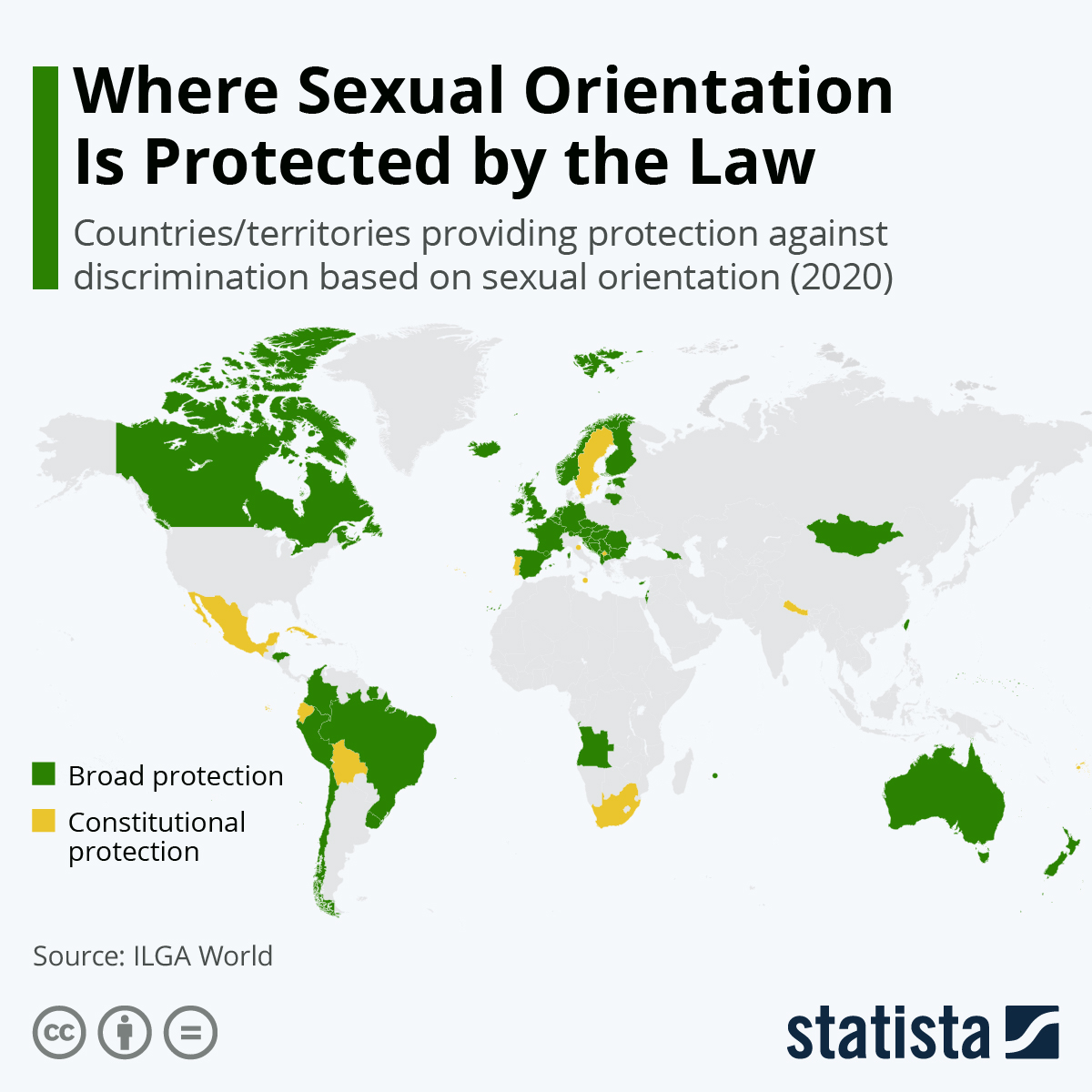56 countries and regions out of 196 areas analyzed by the crowdsourced platform Equaldex have laws in place that protect members of the LGBTQI+ community against discrimination based on sexual orientation or gender identity. As our chart based on Equaldex data shows, most of these countries are in the Americas and Europe.
Notable exceptions in North and Latin America and the Caribbean include Guyana and Panama, where no such protection is currently in place, and bigger countries like Argentina, Venezuela or the United States, where it's partially illegal to discriminate against LGBTQI+ individuals. In Venezuela, for example, discrimination in employment and housing contexts has been forbidden by law since 2012. Argentina meanwhile limits its discrimination law to "race, religion, nationality, ideology, political or union opinion, sex, economic position, social condition or physical characteristics" without mentioning gender identity or sexual orientation while recognizing relevant international human rights treaties.
The United States no longer classifies homosexuality or same-sex marriages as illegal on a national level. Details on discriminatory practices in the workplace, gender-affirming care and other issues related to LGBTQI+ individuals are regulated by the states themselves and sometimes differ greatly.
Countries where there are no practices enshrined in law that prohibit discrimination of any kind because of the victim's sexual orientation or gender identity are most common in Asia and Africa. In some of these countries, the treatment of non-heteronormative and non-cisgender individuals goes far beyond allowing discrimination against them. For example, in Saudi Arabia, Iran or Uganda, engaging in homosexual activities can in theory and often also in practice result in the death penalty.





















